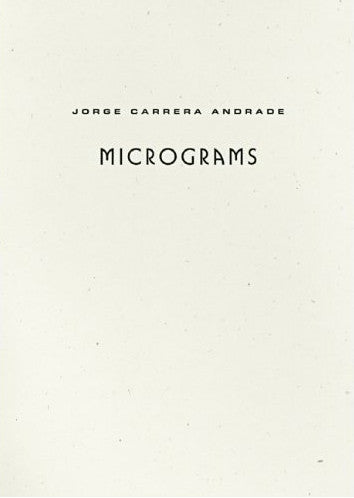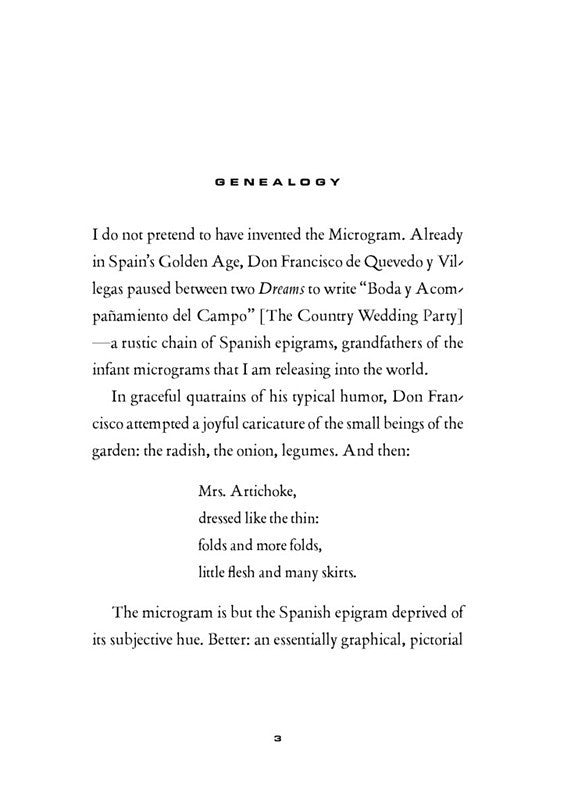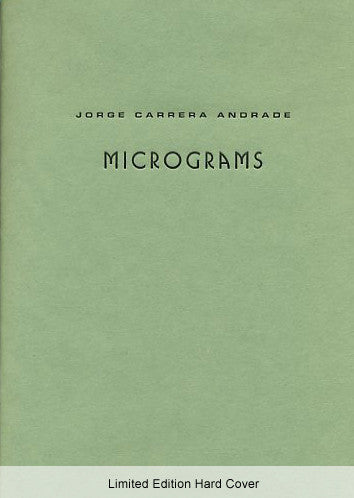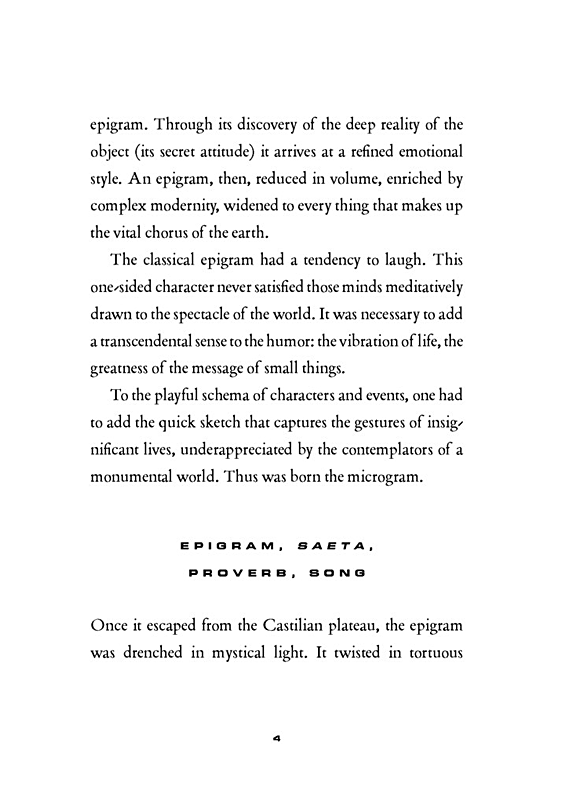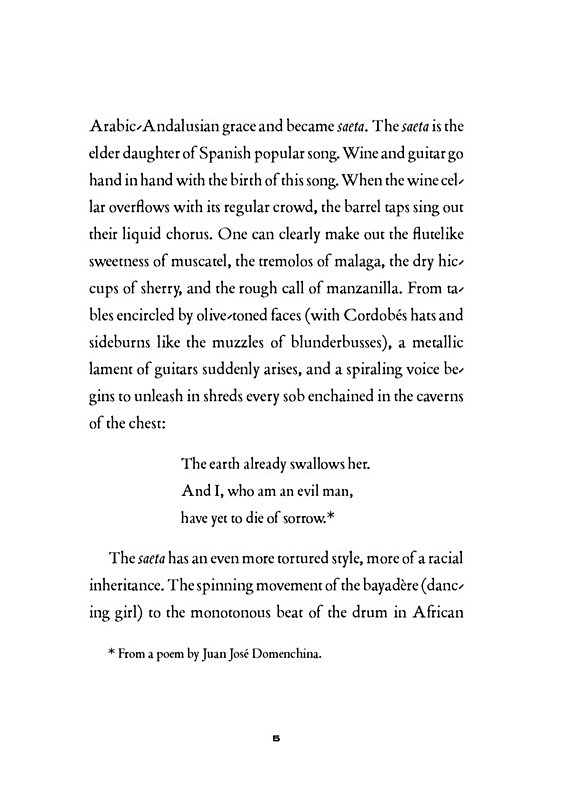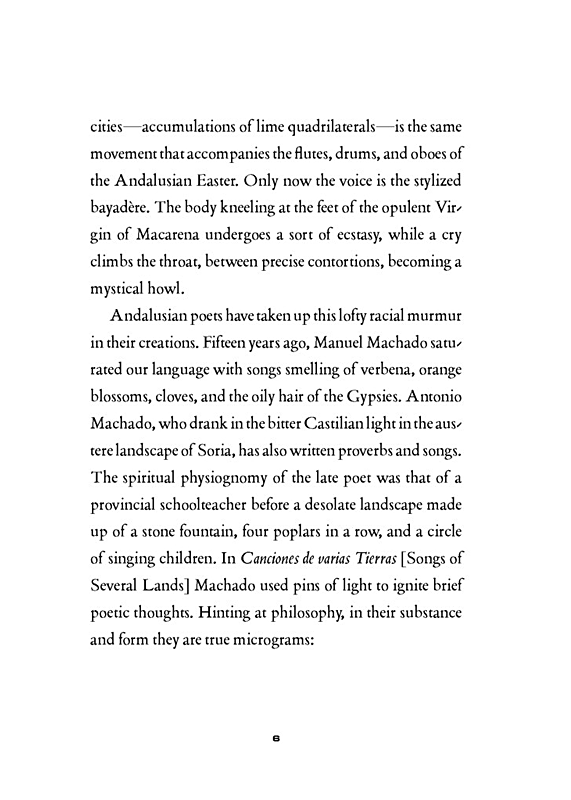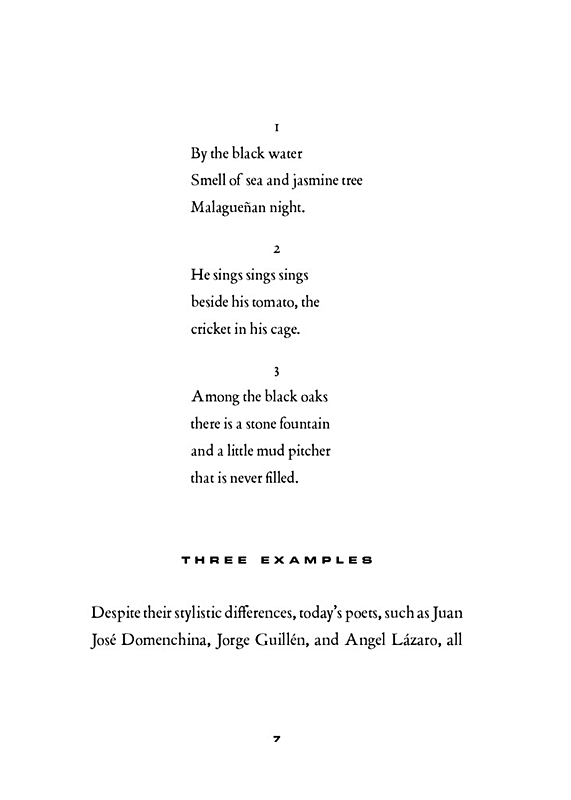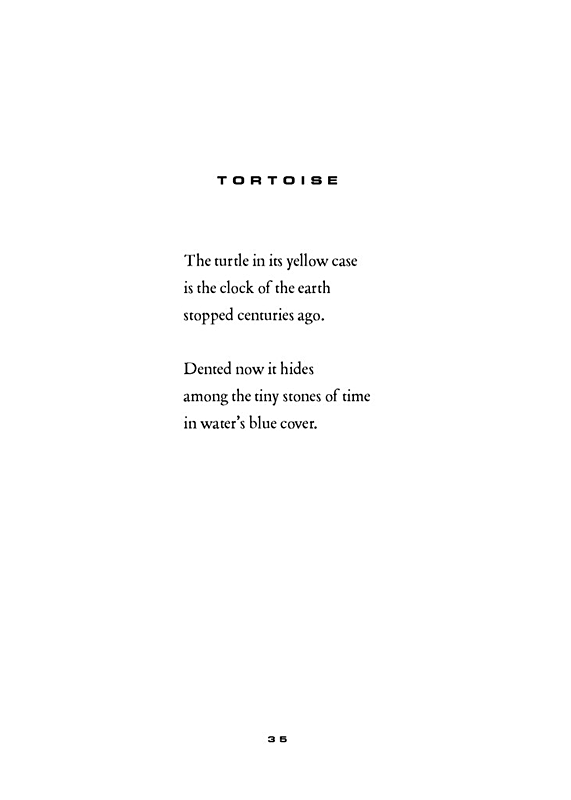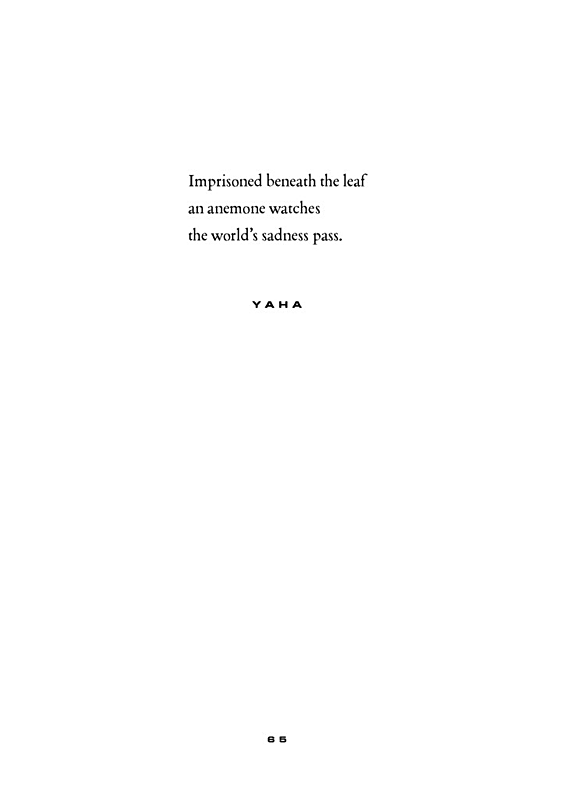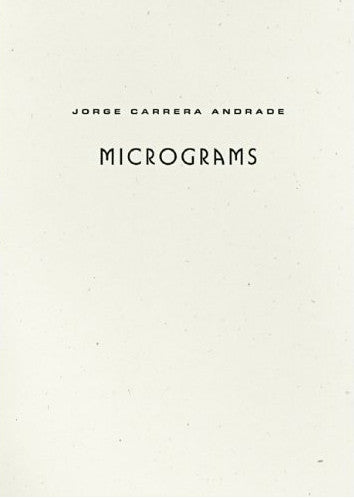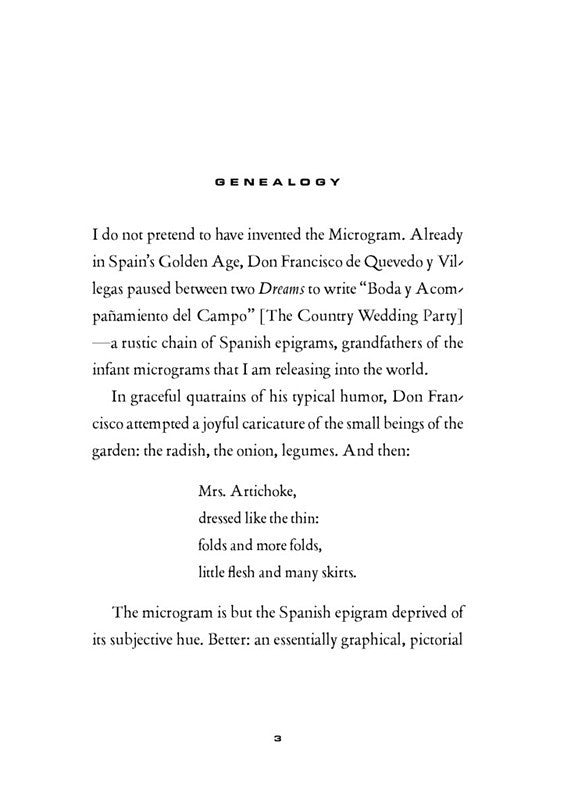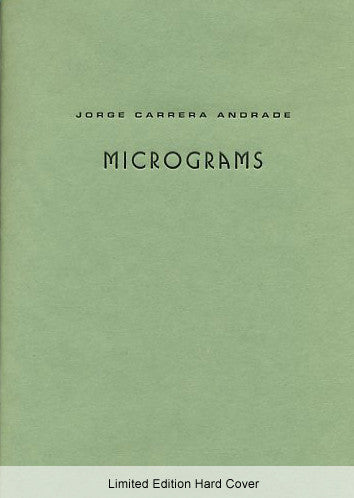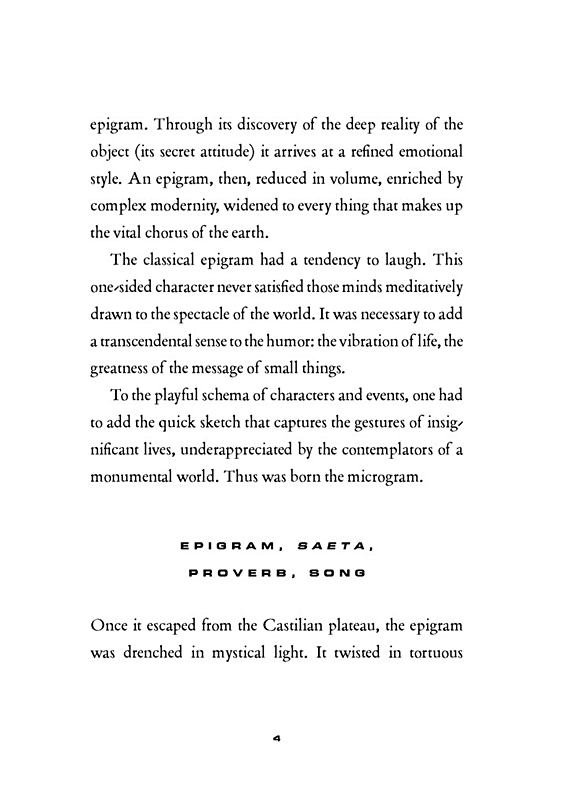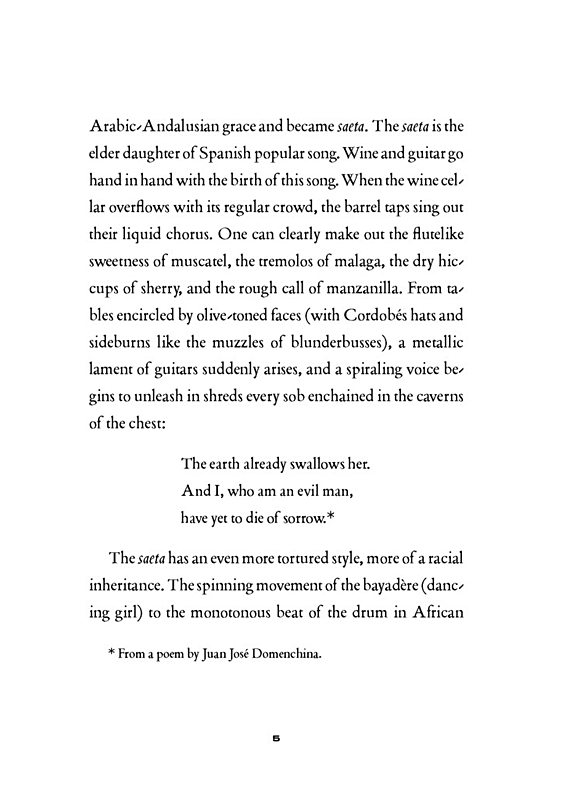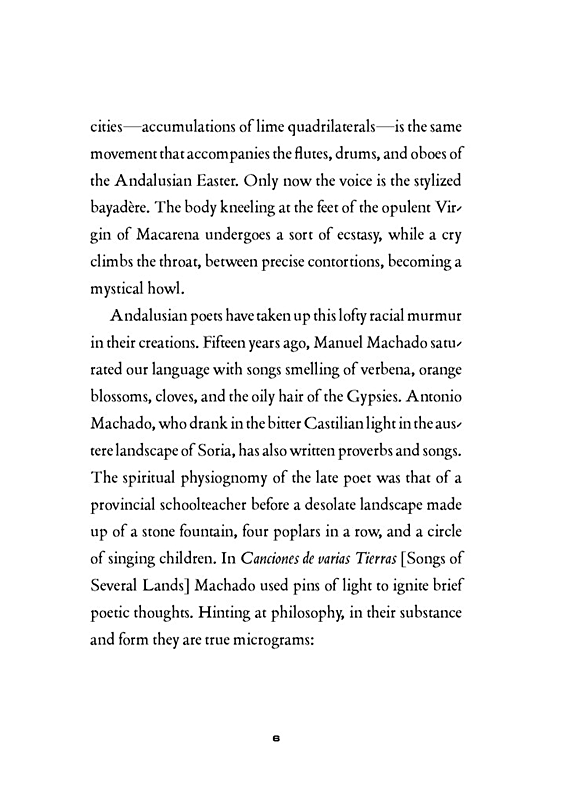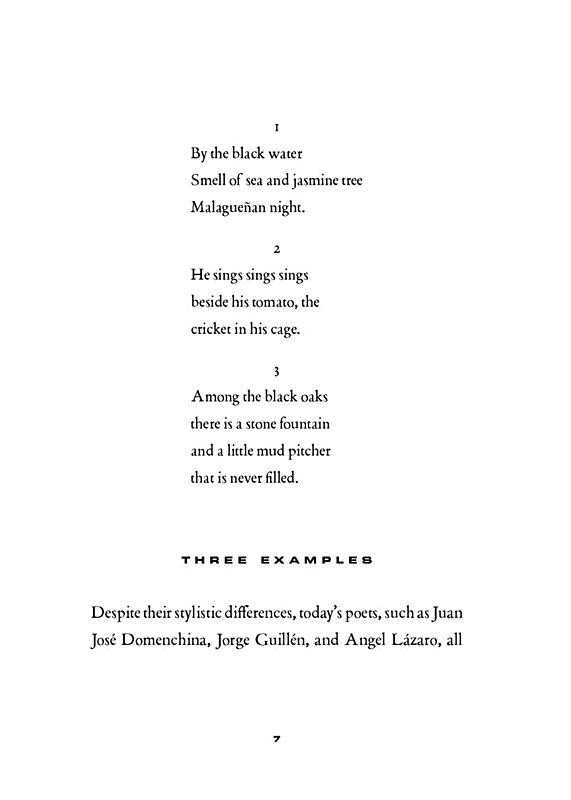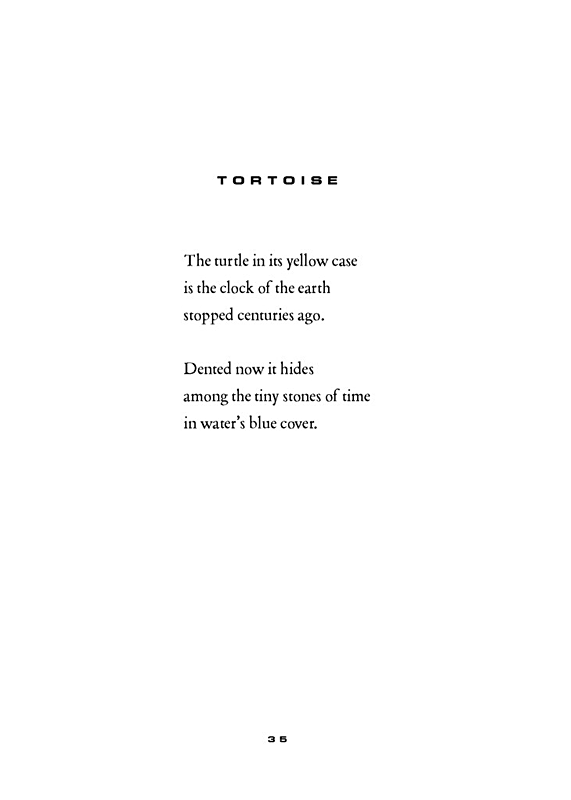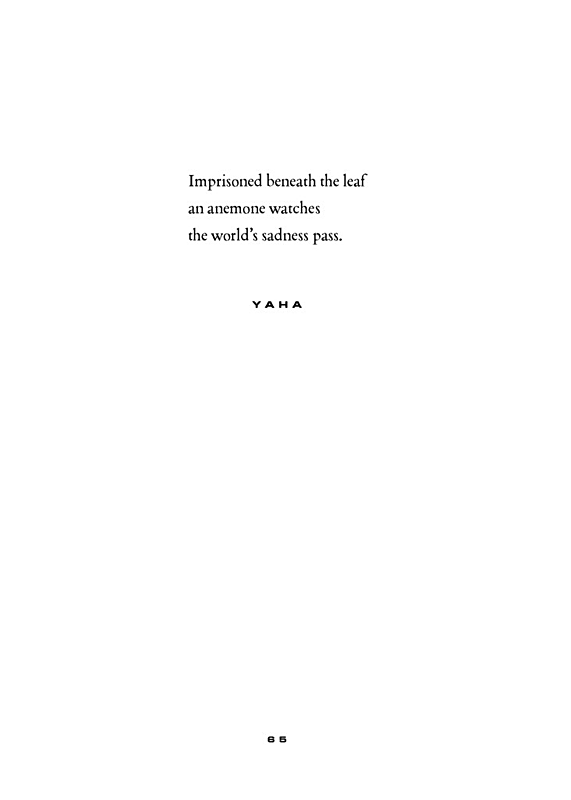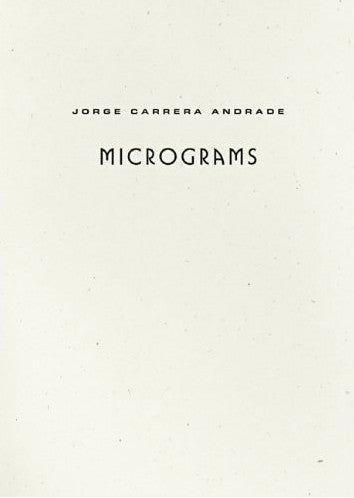
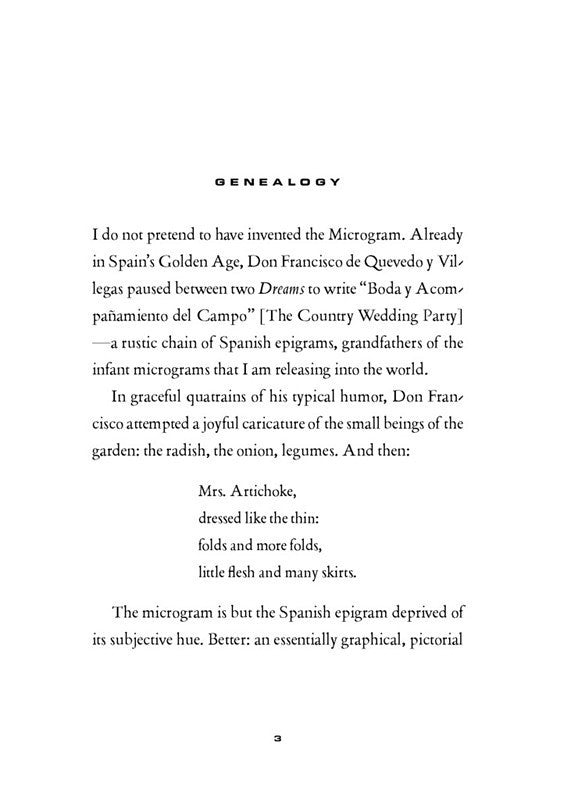
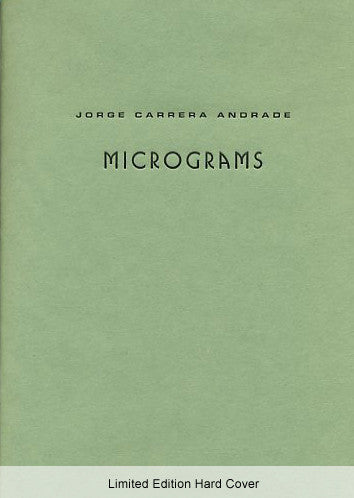
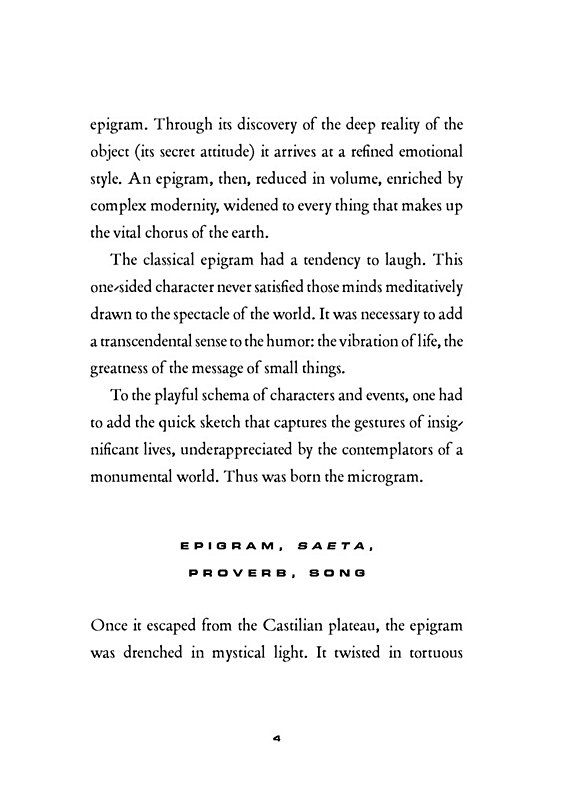
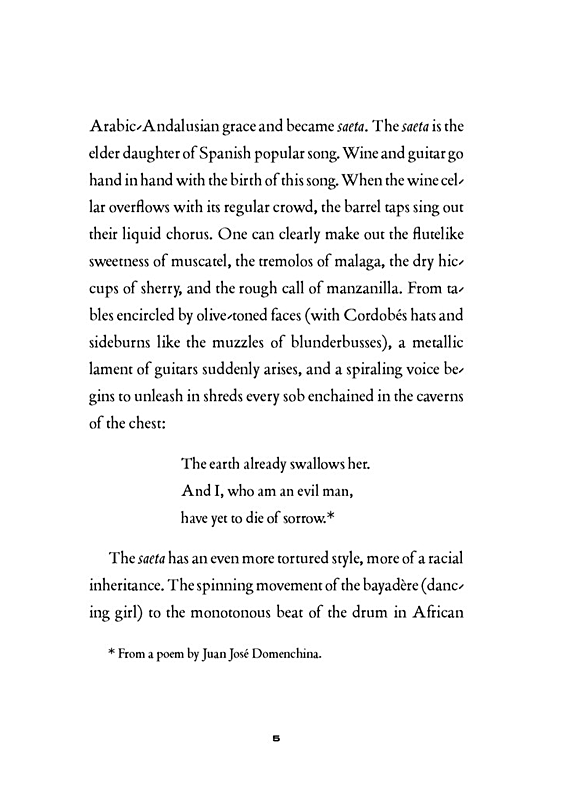
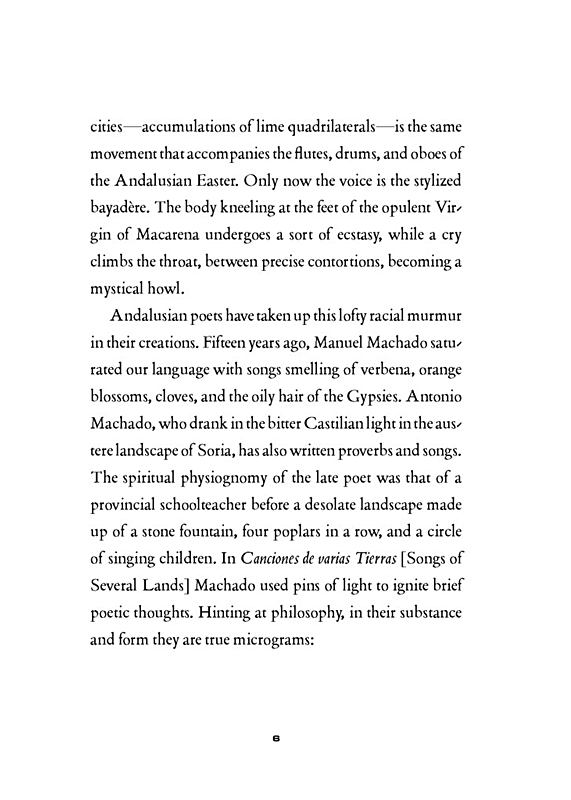
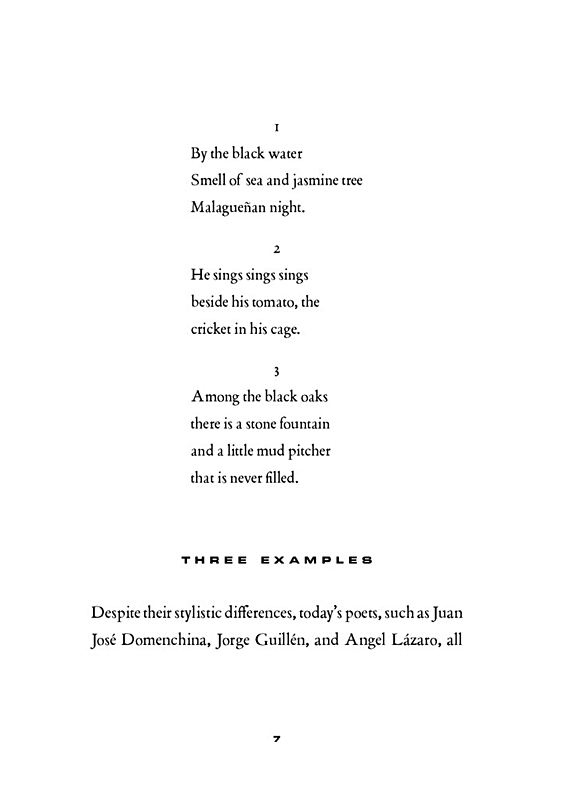
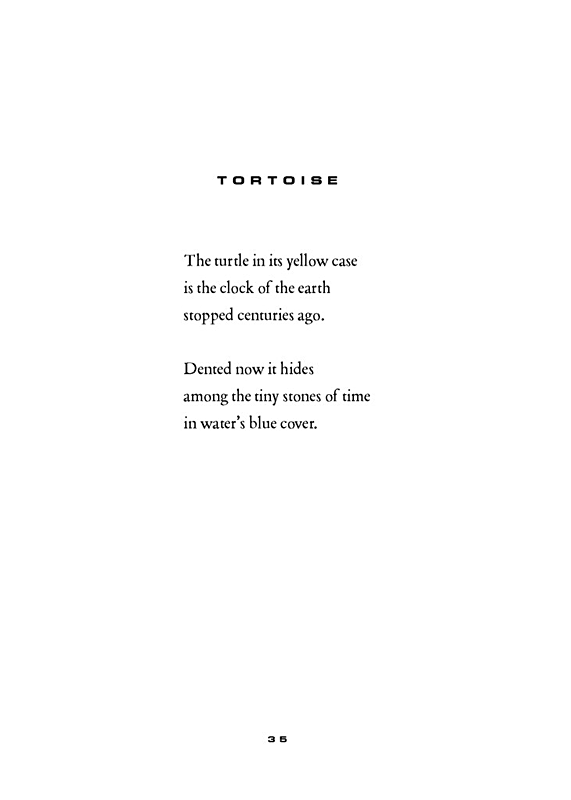
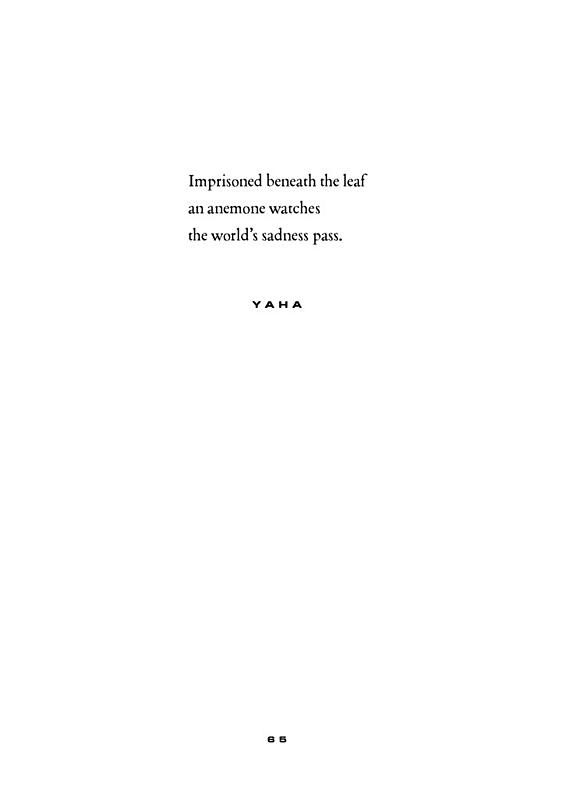
Micrograms
Micrograms
By Jorge Carrera Andrade, Translated by Alejandro de Acosta and Joshua Beckman
-
In the alphabet of things
the snail invents
the penultimate letter.
Equal parts essay, anthology, and poetry, and weirdly post-modern in structure, Micrograms embodies the work of Jorge Carrera Andrade, illustrating his claim that the impulse toward the microgram has always existed. Illuminating the form in its many incarnations (most famously the Japanese haiku), Carrera Andrade points to the richness of possibility contained therein. -
Wave Books and the translators are to be applauded for undertaking this refreshing reclamation project, which leads to reflections that more than trump its modest size.
Donna Stonecipher, Quarterly ConversationCarrera Andrade's micrograms quickly cast their spell, such that I finished wanting at least double the number presented here. The author instead offers nearly two dozen haiku he has translated from Japanese, which Acosta and Beckman translate freely into English, sacrificing, as far as I can tell none of their punch. The entire volume makes a strong case for the power of lyric brevity...magnificente.
John Keene, Drunken Boat
Carrera Andrade’s... poems are appealing little pieces, their own tiny little perfume bottles.
M.A. Orthofer, The Complete Review
The microgram is, well, micro (there is a joke here about William Carlos Williams and "micromachines" but I will spare you), aphoristic, light, and most certainly lyrical. These are safety poems, in case of, and potentially rare, endangered poems. Not only do I like Wave Books’ edition more, I liked the Alejandro de Acosta and Joshua Beckman translation much more than the original. To go a step further, I liked the essays more than the poems, both Andrade’s and the translators’.
Jesse Tangen-Mills, Bookslut
Beckman and de Acosta translate the microgram with loyalty to Andrade’s flare for the Romantic, showing us the unseen world of creatures who are engaged in jobs and tasks that mirror our workaday lives.
Publishers Weekly
I encourage you to pick up a copy of Joshua Beckman and Alejandro de Acosta’s translation of Micrograms from Wave Books. I’ve never read anything quite like these poems before, and Beckman and de Acosta have given us a marvelous introduction to Andrade’s work.
Michelle Aldredge, Gwarlingo
Nourished and inspired by the natural world, [Andrade] develops a distilled voice based on the purity of sounds: a music grounded in immediacy, undecorated but timeless.
Greta Aart, Galatea Resurrects
Publication Date: November 1, 2011
ISBN# 9781933517551 (5x7 96pp, paperback and limited edition hardcover)
Couldn't load pickup availability
